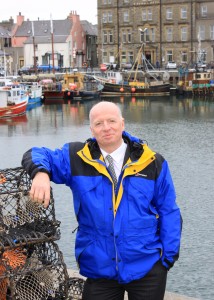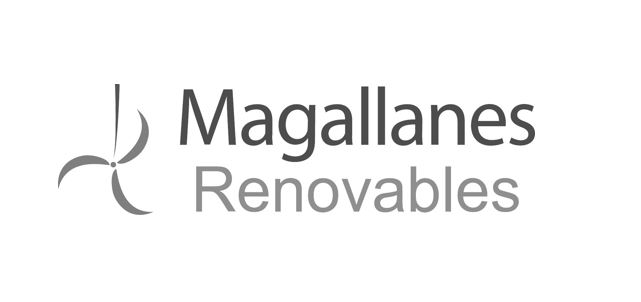Blog: Friends of the Earth interview Neil Kermode
Friends of the Earth have published a case study on Neil Kermode, our Managing Director, as part of their Clean British Energy campaign. This has been developed as part of a collection of case studies on people working in renewable energy sectors to show the breadth of jobs available in renewable energy. Check it out on the Friends of the Earth website, or read it below:

“The Marine Energy Boss”
Neil Kermode, 53, has been the Managing Director of The European Marine Energy Centre (EMEC), Orkney, Scotland, since November 2005. He lives with his wife in Orkney.
What inspired you to work in renewable energy?
I was at school in the early 1970s during the first oil crisis, and I remember doing my homework by candlelight and the ‘Save It’ campaign on TV because we were always having power cuts. Later I went with my local Friends of the Earth group to visit the Centre for Alternative Technology in Wales; I came back and built a wind turbine on the roof of my parents’ garage.
I just think it’s critical that we have a sustainable energy system that is affordable and works well and makes use of our abundant natural resources.
Why did you take the top job at EMEC?
While I was working for the Environment Agency in Dorset I went on holiday to Orkney. That’s when I realised the huge potential for marine energy in the islands, and saw with my own eyes the passion and determination of the people to make renewable energy work. I wanted to set up a tidal energy scheme. A few years later EMEC was growing and they asked me to take on the role of MD.
What does EMEC do?
EMEC is the world’s only testing laboratory for tidal and wave machines. Right now we’ve got 14 customers developing and installing machines – there’s more going on here than anywhere else; we’ve been a world leader since 2003. Cables stretching out into the sea enable devices to deliver power into our substations and onward into the national grid. There is the potential to produce 10MW/hr in the next few years – that’s about a third of Orkney’s peak demand.
How important is renewable energy in Orkney?
Hugely important. 100% of Orkney’s electricity frequently comes from renewable sources of energy – wind mainly.
Right now from my office window I can see the Flotta oil terminal, 3 offshore wind turbines, a barge going past constructing a new pier for the marine renewables industry, and parts of a wave machine being assembled. Orkney has invested some £40 million in its renewable future along with outside investment and it is working hard to bring this new industry about.
Times are changing.
What does your typical day look like?
I’m in touch with people all around the world by phone and email, and meeting visitors, politicans and investors who want to know how they can get involved or help. As a test centre we have clients from all over the globe bringing their machines to Orkney. That takes a lot of organisation. In addition there are numerous challenges to overcome – from dealing with stakeholders to securing funding.
What do Orkney islanders make of the developments?
People wonder how things will fit into the local society and scenery, but there hasn’t been much opposition. Everyone knows that renewable energy presents employment opportunities. Out of a population of about 20,000, around 250 work in marine renewables; there’s public interest in making it work. Naturally there’s a formal consultation process, but I probably learn just as much bumping into people in the Co-op or the main street whilst shopping. We are all locals – it’s not like we’re a company coming in from abroad.
What are the barriers to UK marine energy?
We’re only early on in the development process. Other technologies are more advanced because they’ve had a lot of money thrown at them and have been at it longer – now we need funding for marine renewables and time.
I just think Britain has a choice. Either we develop a sustainable, exportable technology base that the rest of the world can use, or we sit back and let someone else develop it and then moan because we have to keep importing energy and buying expensive foreign gas.
How important is a clean power target?
Targets are vital. It’s up to politicians to enable the construction of the zero carbon economy we need, and we are seeing a lot of important support for renewables.
Continuous and determined signals from the Scottish government are particularly clear and include the Saltire Prize – a pot of money developers can compete for to accelerate the commercial development of clean marine energy. These signals have helped build confidence that is leading to investment by utilities and manufacturing companies.
What’s the best thing about your job?
Helping people who didn’t understand the potential of marine renewables to really get it. People who are born disinterested or agnostic about renewables come here to visit and they see it makes sense. You see the lights suddenly go on in their eyes. Politicians, financiers, civil servants and investors… it’s the biggest single buzz, and it happens routinely.
At the end of the day we have to decarbonise anyway – once we’ve burnt everything we can lay hands on we’ll still need energy; we just have to learn to harvest it, not mine it.





